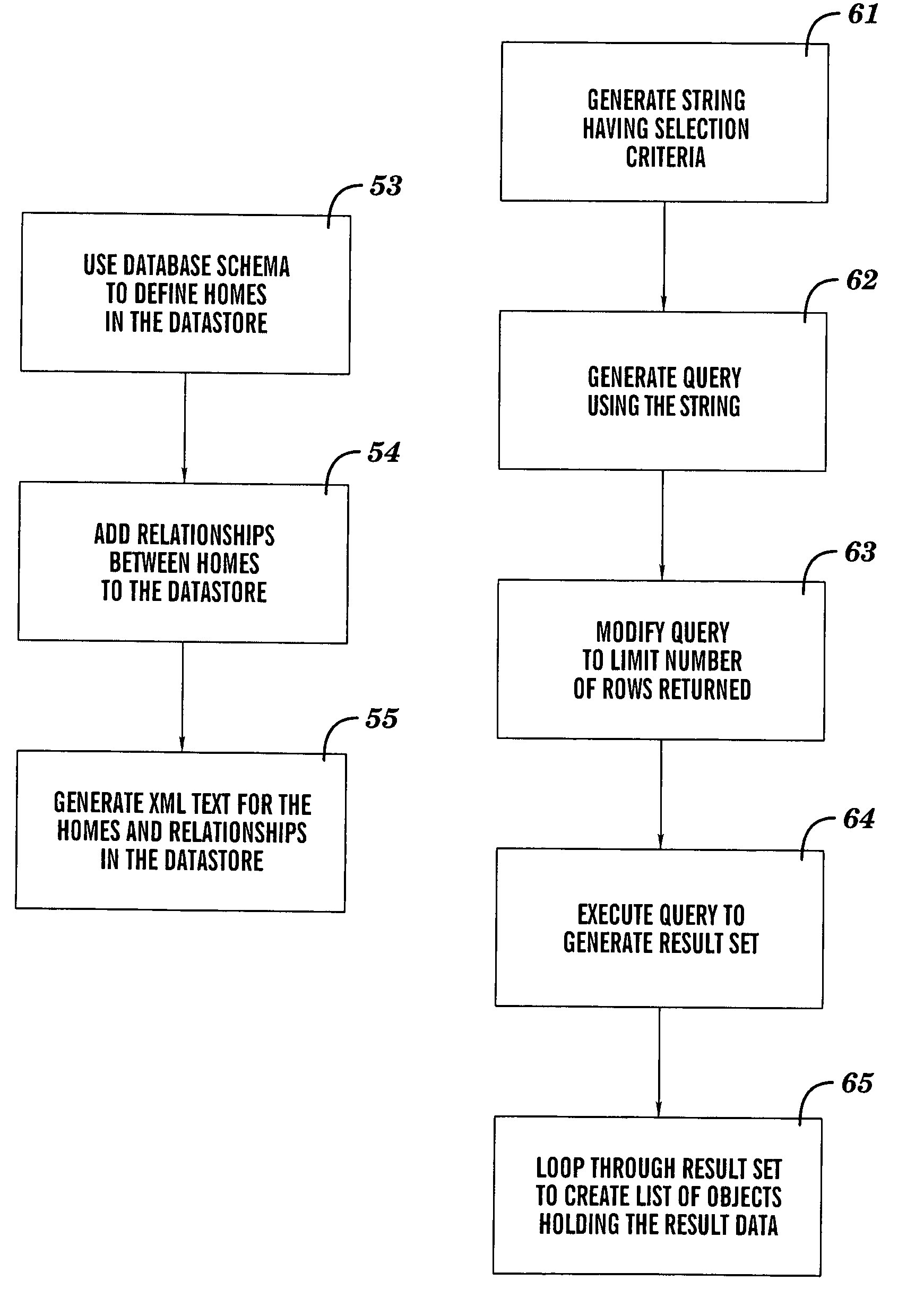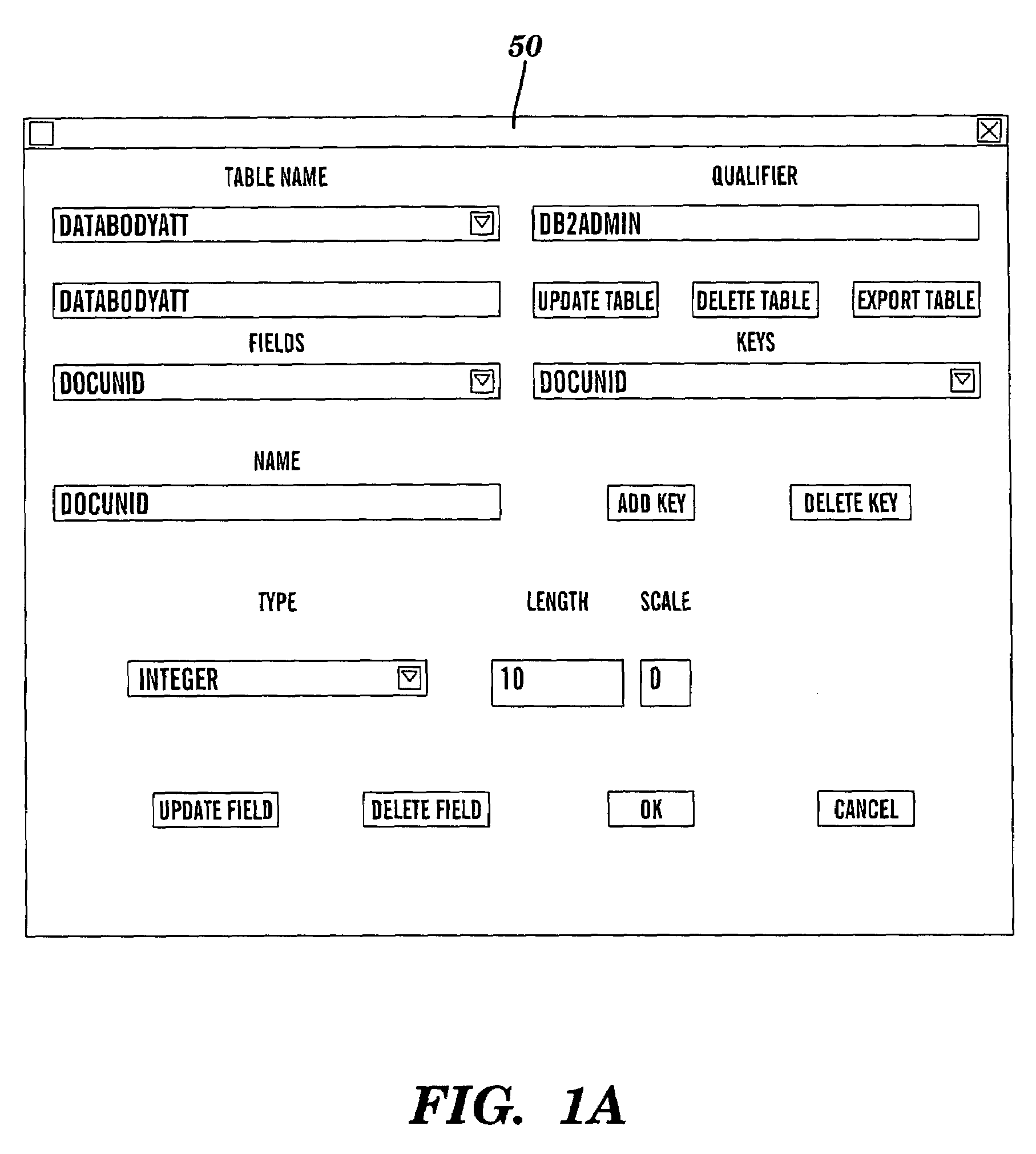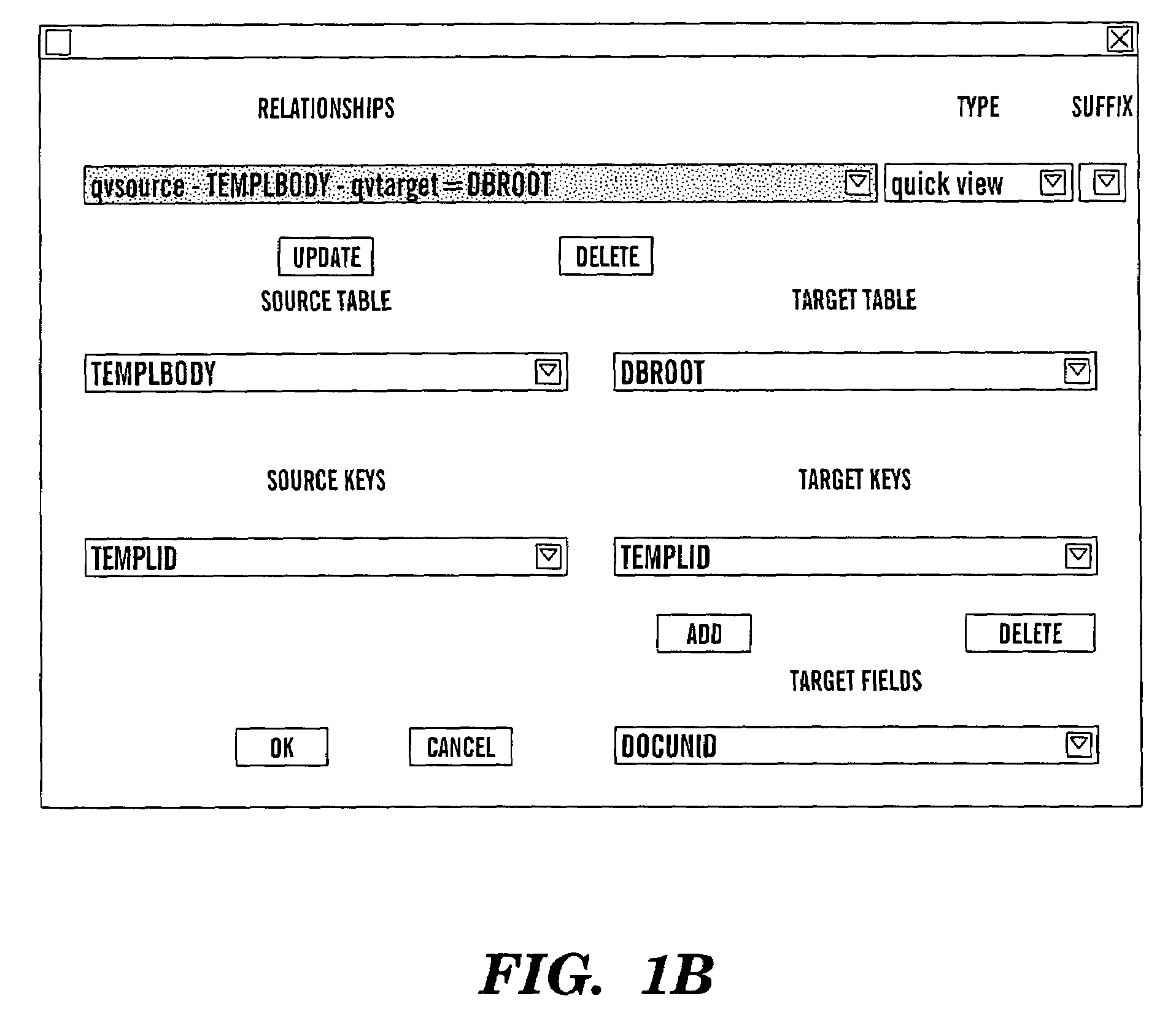Simple persistence mechanism for server based web applications
a server-based web application and persistence mechanism technology, applied in the field of object-oriented simple persistence mechanism, can solve the problems of deep flawed and unsuitable use of persistence builder and enterprise java bean®, client and server needs, and inefficient efficiency, and achieve the effect of reducing or eliminating the problems associated with persisten
- Summary
- Abstract
- Description
- Claims
- Application Information
AI Technical Summary
Benefits of technology
Problems solved by technology
Method used
Image
Examples
example
[0161]FIG. 2–21 depict an Example relating to processing orders of items of clothing and clothing accessories from a catalog, in accordance with embodiments of the present invention. FIG. 2–4 show steps for defining the datastore at buildtime, as an illustration of the flow chart of FIG. 22, described supra. FIGS. 5–8 depict illustrative database tables, with columns and rows, for this Example. FIGS. 9–17 depict sequential steps relating to a runtime process of retrieving lines for an order for this Example buildtime, as an illustration of the flow chart of FIG. 23, described supra. FIGS. 18–21 sequential steps relating to a runtine process of retrieving a list of orders for this Example buildtime, as another illustration of the flow chart of FIG. 23, described supra.
[0162]FIG. 2 depicts step one at buildtime, namely exporting schema (i.e., table attributes or metadata) of database tables Orders, Lines, Customer, and Catalog tables from a database 30 to a datastore 32. The Orders, L...
PUM
 Login to View More
Login to View More Abstract
Description
Claims
Application Information
 Login to View More
Login to View More - R&D
- Intellectual Property
- Life Sciences
- Materials
- Tech Scout
- Unparalleled Data Quality
- Higher Quality Content
- 60% Fewer Hallucinations
Browse by: Latest US Patents, China's latest patents, Technical Efficacy Thesaurus, Application Domain, Technology Topic, Popular Technical Reports.
© 2025 PatSnap. All rights reserved.Legal|Privacy policy|Modern Slavery Act Transparency Statement|Sitemap|About US| Contact US: help@patsnap.com



